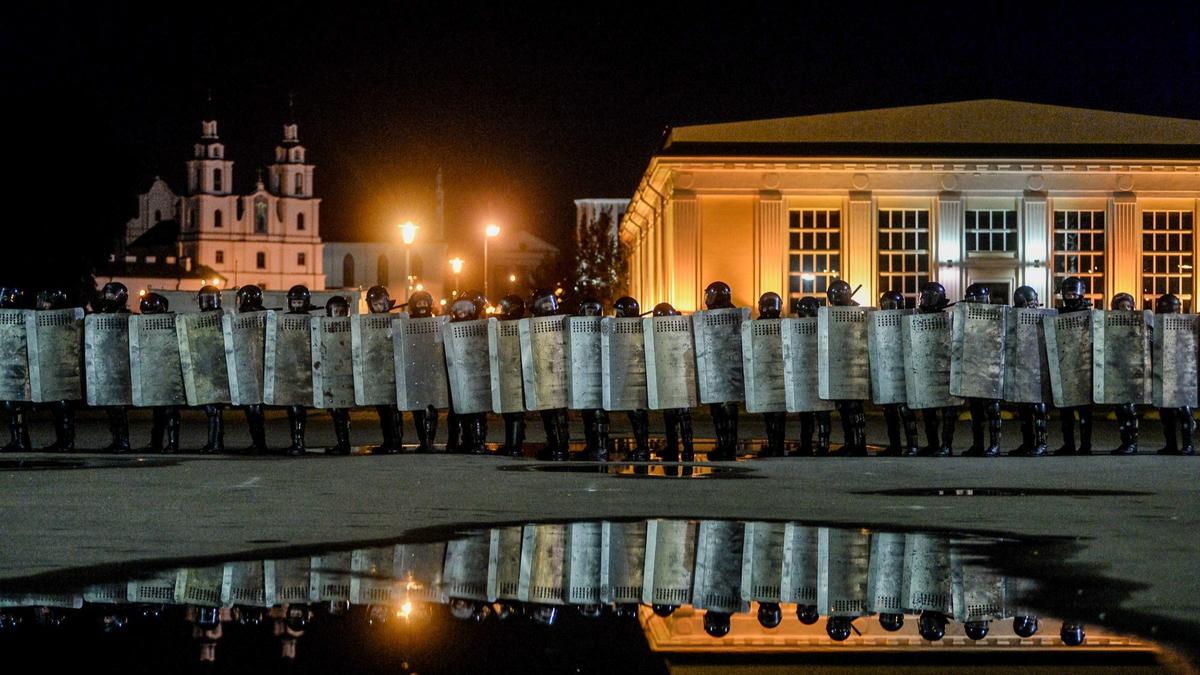I’ll be the first to admit that as the first flurry of presidential pardons was issued in Belarus this summer, I took the bait hook, line and sinker. It was very enticing bait, after all, with the country’s dictator Alexander Lukashenko announcing on 2 July that some 18 seriously ill political prisoners, most of whom were battling cancer in some form or other, were to be amnestied, assuring the population of the “human approach” taken in such matters by the notoriously inhumane Minsk regime.
Putting a good word in
Until the summer, the only two people to have been granted an early release from prison by the Belarusian authorities since 2020 were former opposition journalist Raman Pratasevich and his ex-girlfriend, Russian national Sofia Sapega, whose Ryanair flight from Athens to Vilnius was forced to make an emergency landing in Minsk under false pretences in May 2021 so that the pair could be arrested.
Pratasevich, once the editor-in-chief of independent Belarusian news outlet Nexta and Telegram channel Belarus of the Brain, subsequently declared an “extremist organisation” by the authorities, only spent a few days in custody, however, before making a dramatic u-turn that saw him actively express contrition for his past activities, condemn the Belarusian opposition, and say just how good things were in the country.
Indeed, by the time a court sentenced Pratasevich to eight years in prison in 2023, he had so successfully transformed himself into a key pro-regime propagandist that he was pardoned weeks later.
His by-then-ex-girlfriend Sapega was also pardoned shortly afterwards, having written to Lukashenko to request a pardon in June 2022 immediately after her transfer to a penal colony in the city of Homyel. However, in her case, the pardon was rescinded the following January as she had yet to serve half of her sentence, a prerequisite for a pardon in Belarus. However, Oleg Kozhemyako, the governor of the Primorsky region in Russia’s Far East where Sapega was born, was able to secure her release during a visit to Minsk in June 2023, and Sapega was permitted to travel back to Russia with him.
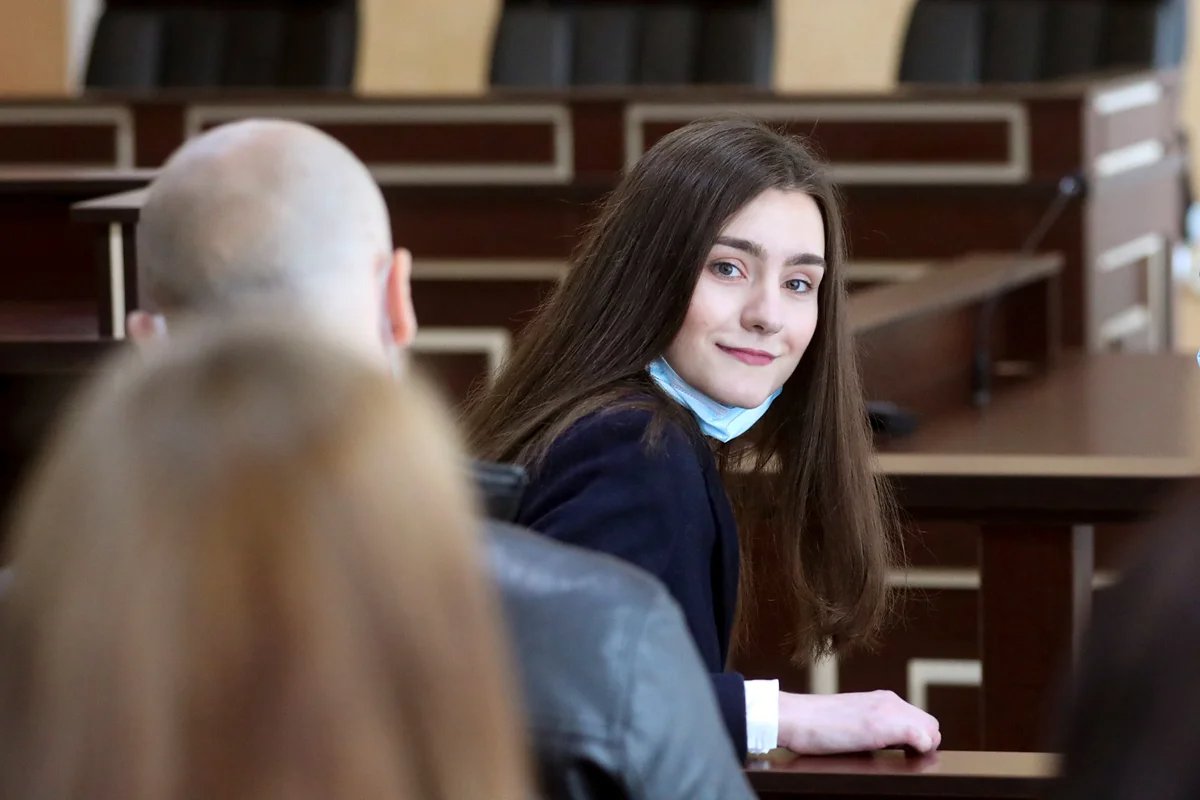
Sofia Sapega before a court hearing in Hrodna on 6 May 2022. Photo: Leonid Shcheglov / AP / Scanpix / LETA
Kozhemyako wrote on Telegram afterwards: “Sofia Sapega has been given a unique opportunity to start life anew. She is free after I appealed to Belarusian President Alexander Lukashenko,” adding that “only a truly wise head of state” was “capable of such a step”.
The first case saw active cooperation with the regime, which continues to this day, and the second a personal request from a high-ranking Russian official, so neither fits the general pattern with which clemency is dispensed in Belarus, which normally involves a political prisoner confessing their guilt, writing to the president to request a pardon, and pledging to behave well in the future.
Since then there had been no other pardons until July of this year, so when Lukashenko suddenly announced he would release seriously ill political prisoners, I really wanted to believe it, even after years spent living under his rule and becoming used to his lies.
Divorce yourself free
But it was hard not to have faith in July. No sooner had Lukashenko made his initial pledge than Ryhor Kastusiou, a former leader of the Belarusian Popular Front, was suddenly released. Kastusiou, 67, who was convicted of conspiracy to carry out a coup and sentenced to 10 years in prison in 2022, was suffering from cancer and had already undergone major surgery while in prison.
In February Kastusiou had told his wife in a letter that he didn’t believe he would live the six years that remained until their golden wedding anniversary. Belarusians, who for so long have lived lives devoid of hope, were therefore stunned by his release, news of which was even reported by state media.
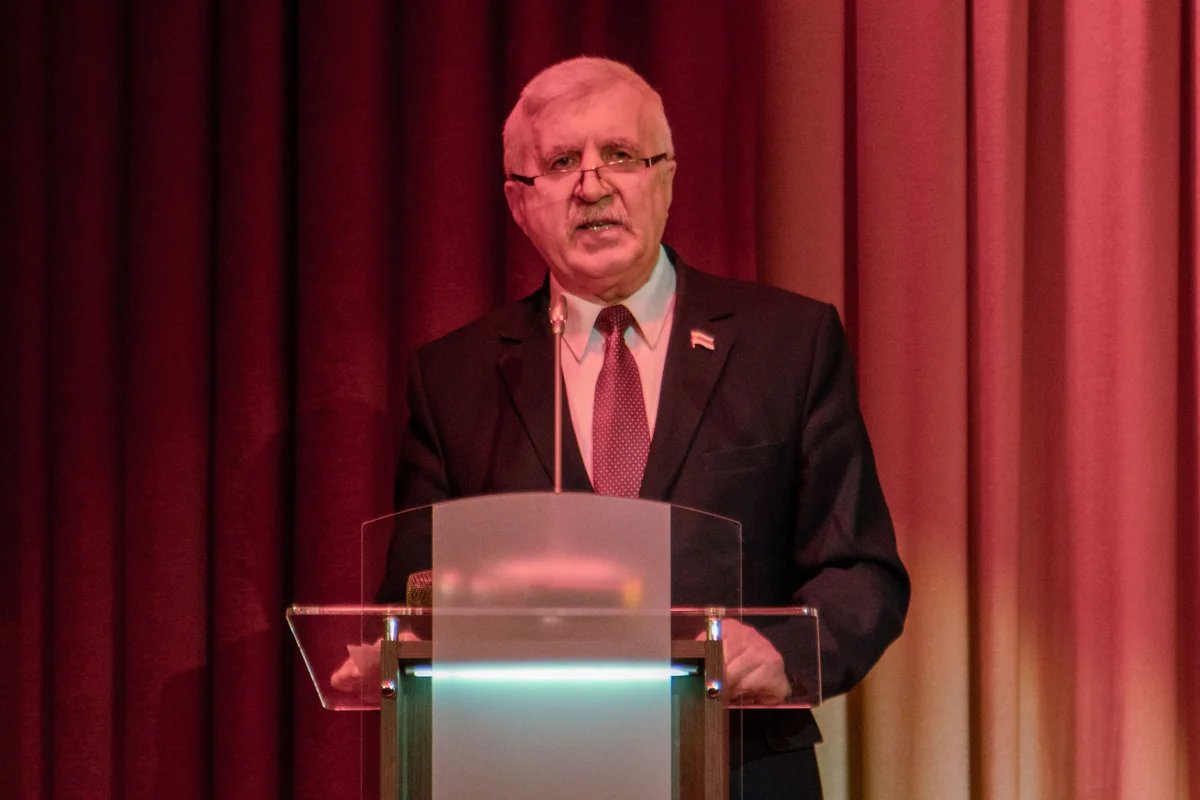
Ryhor Kastusiou. Photo: Paŭliuk Šapiećka / Wikimedia
No full list of those pardoned has ever been published, and it only emerged days later that among those to have been released in that first wave were two high-profile political prisoners, Palina Palavinka and Darya Losik, both of whose husbands were also behind bars, and both of whom had just weeks of their prison sentences left to serve.
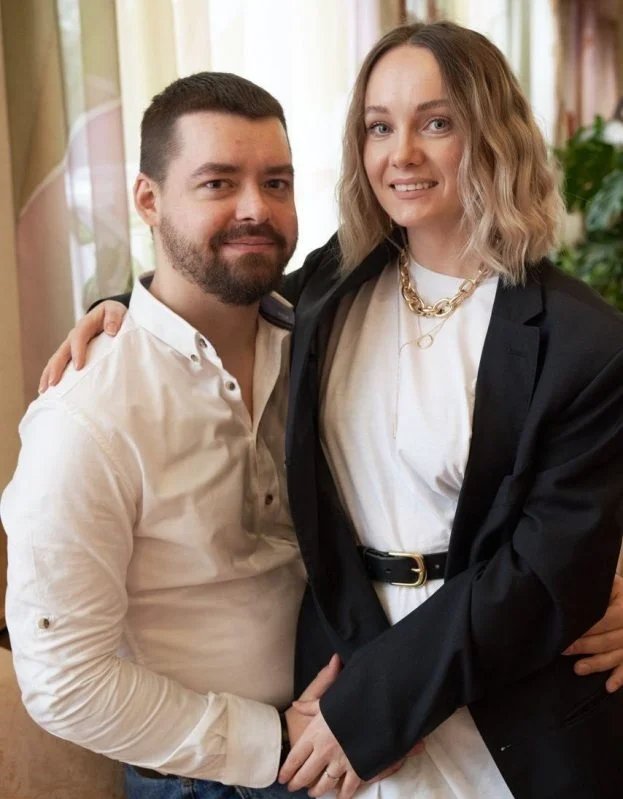
Palina Palavinka and Dzmitry Luksha. Photo: Viasna
Palavinka’s husband is the former propagandist Dzmitry Luksha, who left Belarusian television and began to work for a Kazakh TV channel. He and his wife were charged with discrediting Belarus after a story about migrants on the Belarusian-Polish border for which Palavinka allegedly wrapped her head in a headscarf to portray a Syrian refugee. He was sentenced to four years in prison, while she was sentenced to two and a half. Luksha was released in the same wave of pardons.
Darya Losik is the ex-wife of blogger Ihar Losik, who ran the independent Telegram channel Belarus of the Brain. Ihar was arrested in June 2020, before the August protests, and sentenced to 15 years in prison for “organising mass riots” and “inciting hatred”. In October 2022, his wife was arrested for giving an interview to the Polish-funded channel Belsat TV, which is deemed an “extremist organisation” in Belarus. She was sentenced to two years in prison. She paid heavily for her pardon: an interview on state TV condemning her husband and saying they had now divorced. She went to prison for an interview and was released for one too.
I fought the law
Following the unprecedented wave of pardons issued in July, a further 30 political prisoners who had all been serving terms for so-called “extremism” were pardoned and released in August, with the presidential press service stressing that each of them had admitted their guilt, repented, and pledged to lead law-abiding lives in the future.
This was also the only set of pardons that was publicised by Belarusian propagandists, with reporters for Belarusian state TV waiting outside penal colonies to gather soundbites from the former prisoners saying how grateful they were to the country’s wise and strong ruler for giving them a second chance.
In late September, the Dissidentby human rights initiative reported that Belarusian KGB agents had threatened pardoned political prisoners with fresh prison sentences unless they agreed to work with them.
Lukashenko subsequently signed two further decrees pardoning prisoners in September. On 4 September, 23 men and seven women were pardoned, all of whom had young children, according to Lukashenko’s press service. On 16 September, another wave of pardons was issued, this time for 37 political prisoners. In November Lukashenko signed another two decrees pardoning 63 people in total, while his most recent decree, pardoning 29 people, was signed on 9 December
However, the law-abiding lives former political prisoners are expected to lead is something of a red herring, as life on the outside for former political prisoners is often made unbearable by the relentless attention paid to them by the Belarusian security services.
While human rights activist Leanid Sudalenka had no intention of leaving Belarus after completing his three-year prison sentence, he ended up being forced to flee to neighbouring Lithuania due to the persistent harassment he was subjected to by the police. As it turns out, his exit was well timed as he is now wanted again in Belarus for “extremism”.
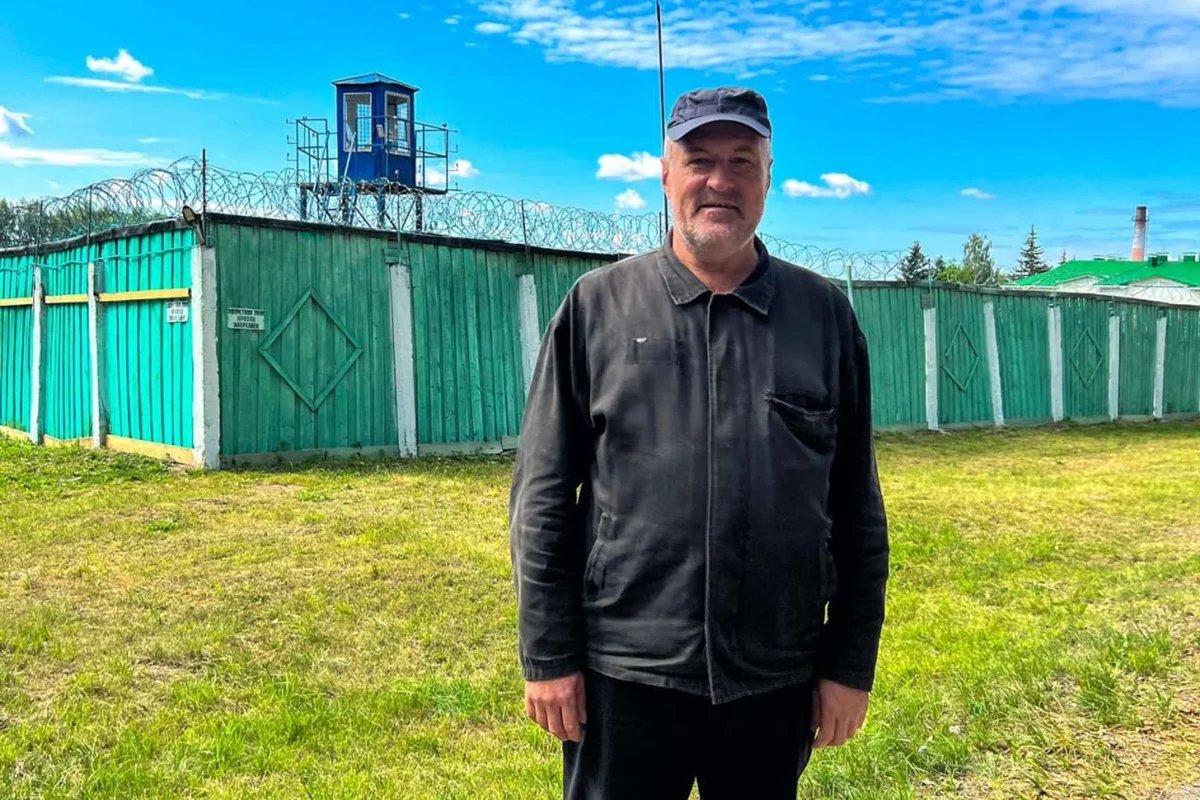
Leanid Sudalenka. Photo: Vyasna
Sudalenka’s is no isolated case, either. In late September, the Dissidentby human rights initiative reported that Belarusian KGB agents had threatened pardoned political prisoners with fresh prison sentences unless they agreed to work with them, and also attempted to force former inmates to appear in propaganda videos, leading to a sharp increase in the number of people wanting to flee the country.
Missing the window of opportunity
Incomplete though the list of political prisoners is, it clearly establishes the criteria that must be met for a pardon, with the sole exception of Kastusiou. Each statement from Lukashenko’s press service has repeated the same refrain about each prisoner to have received a pardon: “They all admitted their guilt, sincerely repented for their deeds and committed to leading law-abiding lives.”
The most important prerequisite for receiving a pardon, however, is having a clean legal slate before 2020, the year when the stolen presidential election results led thousands of ordinary Belarusians to join anti-government protests. Lukashenko only seems to pardon those with no history of opposing the authorities before then.
There is some logic in this approach: Lukashenko considers those who have been involved with the political opposition for a long time to be his sworn enemies, whereas he believes that those who said nothing about freedom or fair elections previous to 2020 might yet be convinced to become quiescent again.
“Are they letting people out in droves?” a Russian colleague asked me recently. It may look that way from the outside, but the numbers tell a very different story.
While this may be a logical assumption, it is also an incorrect one — people are rarely quiescent after being subjected to trumped up criminal charges and enduring prison, torture and humiliation. Instead, they leave prison full of hatred and with an insatiable lust for revenge.
Lukashenko probably still hopes that those he thinks of as “random passers-by” who joined the 2020 protests on a whim can be brought back to heel. He even let imprisoned opposition figure Maria Kalesnikava’s father, Alexander Kalesnikau, visit his daughter in prison, with photos of a smiling Kalesnikava published by none other than Pratasevich, whom the authorities had graciously given permission to accompany Kalesnikau to the penal colony to take pictures.
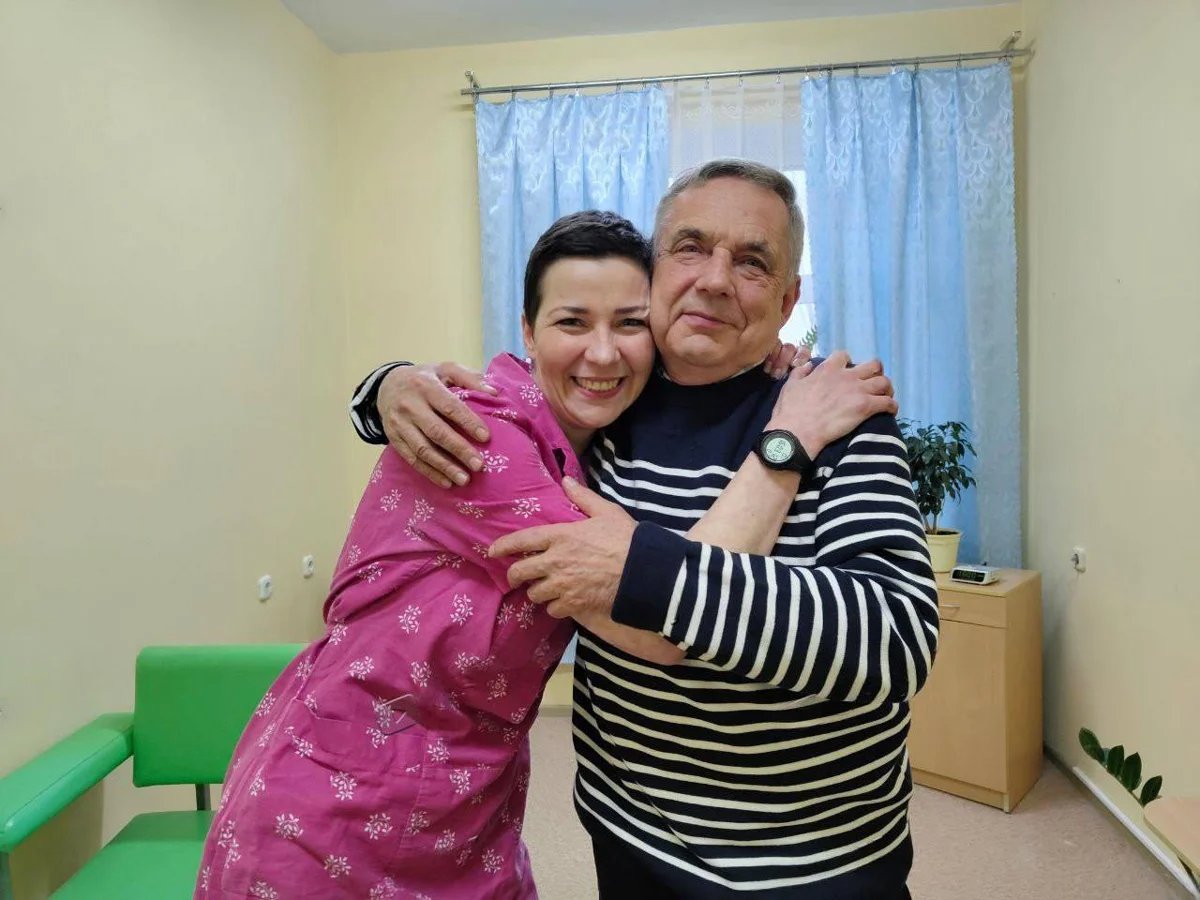
Maria Kalesnikava with her father. Photo: Raman Pratasevich / Telegram
After the event, Pratasevich explained how he and Kalesnikau had discussed the opportunity, why they decided to write to Lukashenko, how he made sure the letter got through, and how all’s well that ends well, adding that Kalesnikava was doing well in prison, where he said she spent her days reading, drawing and practising yoga.
Kalesnikau said that he had spoken with his daughter about the window of opportunity afforded by a presidential pardon, and said she had promised to think about it. All those concerned about Belarusian political prisoners were genuinely happy that father and daughter met after a year and a half of no letters or calls, yet understood that this was a signal from the regime to political prisoners and their families: request a pardon while you can.
Indeed, the authorities are now attempting to coerce political prisoners into this course of action at every possible turn, as it serves to both humiliate and discredit some of the country’s leading opposition politicians, as well as, in some cases, allowing them to be recruited by the security services as informers.
In July, Belarusian human rights organisation Viasna reported that prosecutors were visiting a penal colony in the town of Navapolatsk on a daily basis to compel political prisoners being held there to request pardons. Those who refused faced solitary confinement, a ban on receiving visits and parcels, and the risk of new charges being brought against them, Viasna said.
A recent example of this was the case of opposition blogger Dzmitry Kazlou, who was detained in June 2020 and convicted of “organising mass riots”, despite the fact that the anti-Lukashenko protests later dubbed “riots” by the security forces didn’t actually begin until two months later, but Belarusian courts have long since turned a blind eye to such trifling details.
Shortly before he was due to be released last month, Kazlou was visited at his penal colony in the city of Babruysk by prosecutors who urged him to seek a pardon, a proposition that Kazlou rejected out of hand, having served over four years of his prison sentence and having just four months to go until his release date. The prison administration promptly filed multiple reports against him, and Kazlou was placed in pretrial detention where he is currently awaiting prosecution for “wilful disobedience to the staff of a correctional facility”. As a seasoned activist whose interest in politics began long before 2020, Kazlou was ineligible for a pardon in any case.
“Are they letting people out in droves?” a Russian colleague asked me recently. It may look that way from the outside, but the numbers tell a very different story. Viasna recently calculated that while 207 political prisoners had been pardoned and released since 3 July, another 290 people had been arrested and charged with political crimes over the same period. Those figures speak for themselves.
